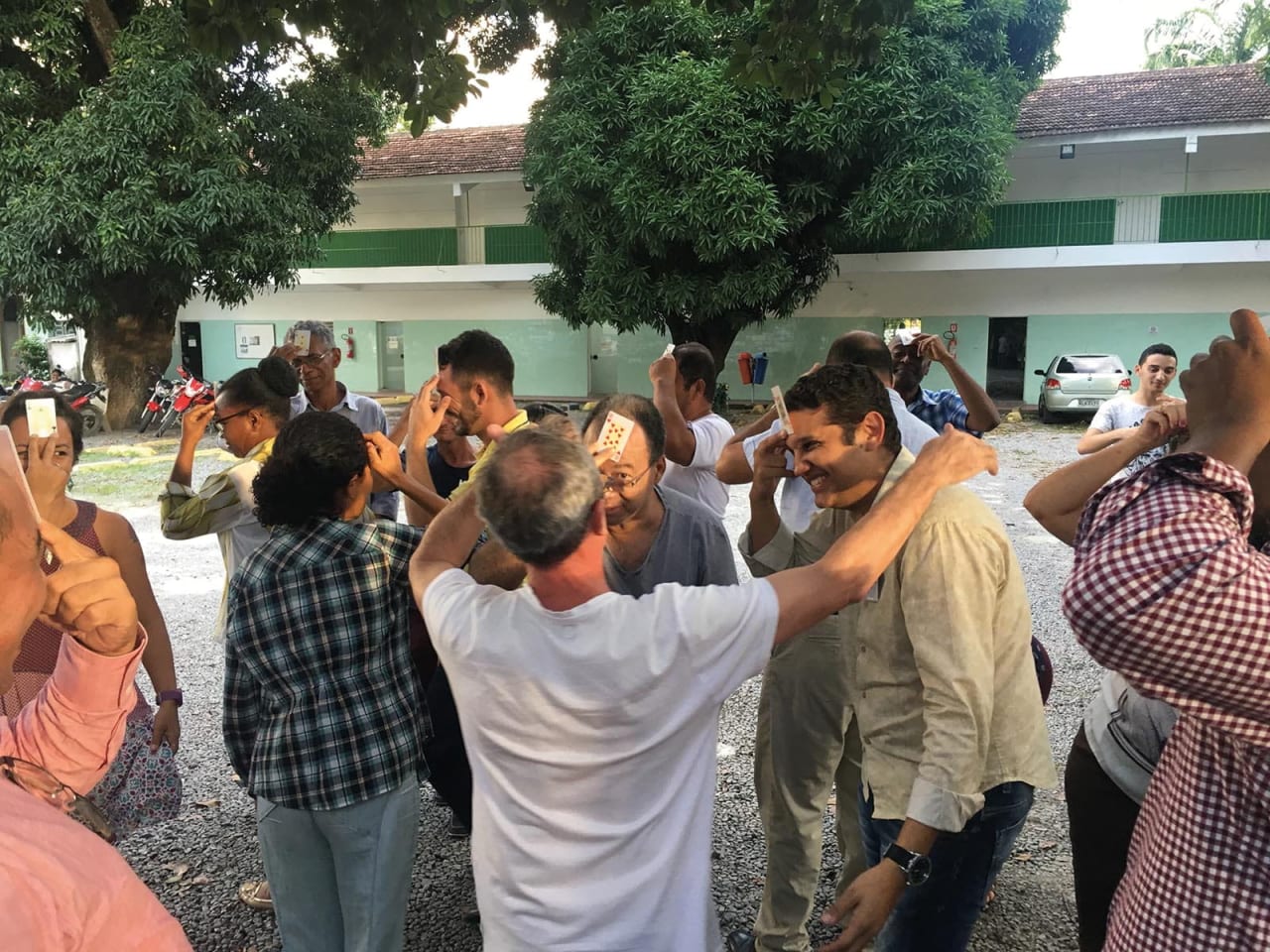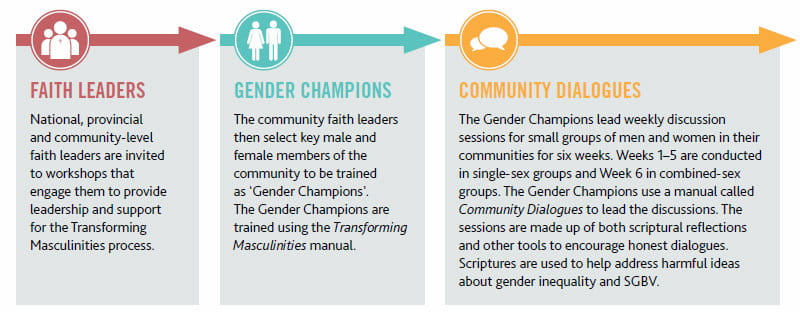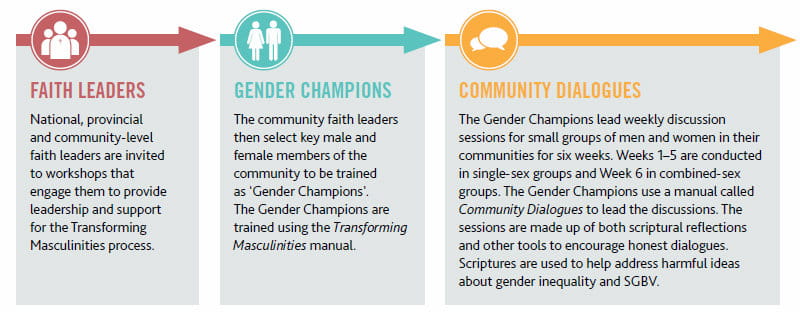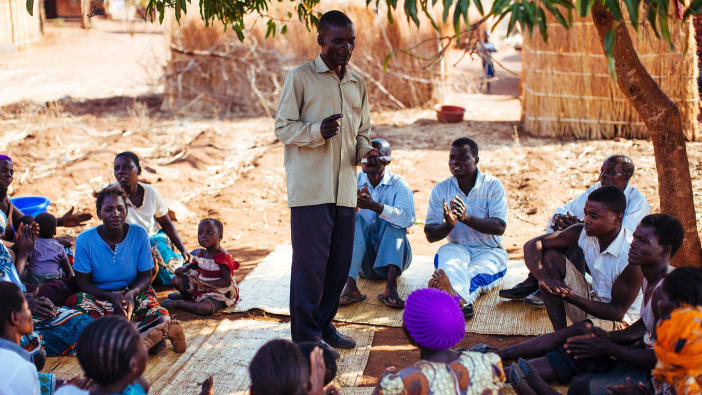What can we do to end sexual and gender-based violence (SGBV) in our homes and communities? Tearfund has developed a new faith-based approach called Transforming Masculinities to help achieve this goal.
Inequality between men and women is a driving force behind SGBV. If we are serious about ending gender inequality, we need to address people’s harmful ideas about what it means to be male or female.
To date, many development programmes have focused on raising awareness of SGBV and empowering and advocating for the rights of women, girls and survivors. Yet what has been lacking is engagement with men and boys, who are the main group that carries out violence (and are sometimes victims themselves). Also, men hold positions of power and influence in many contexts – culturally, politically and in the church. If we engage with them meaningfully, they can be great allies for promoting gender equality.
The Transforming Masculinities approach looks at the different ideas people have about what it means to be a man – in homes, relationships, communities and society in general. Sometimes society teaches men to behave in ways that are harmful to themselves and others, especially towards women and girls. Transforming Masculinities creates the space for conversations, reflections, accountability and a shared journey with other men to break the cycle of violence. It promotes positive aspects of being a man, taking Jesus as our example.
Using faith and scriptures
The majority of the world’s people follow a religious tradition or faith. Sometimes faith leaders (who are usually male) and certain interpretations of scriptural texts can reinforce beliefs that give men more power and value than women. These harmful interpretations allow gender inequality to continue, and are often even used to justify violence and to shame survivors of SGBV.
However, faith leaders and faith traditions can equally be powerful agents for change in addressing SGBV. The Transforming Masculinities approach engages with faith leaders, and trains ‘Gender Champions’, who then facilitate community dialogues.












